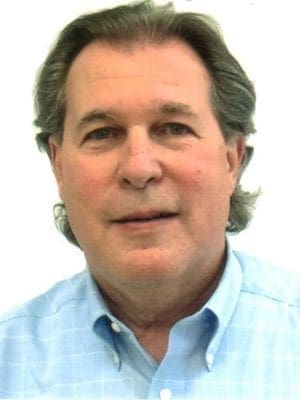Social capital is a commodity best understood in the same way one might appreciate the value of making modest, regular contributions to a savings account and trusting the power of time and interest.
The community surrounding Holmeswood Baptist Church in Kansas City, Missouri, is diverse and dynamic. There are pockets of extreme urban poverty and also a handful of upper middle class neighborhoods.
It’s a community that originated in the early 1950s as a south side suburban area drawn together by the Center School District, a modest school district that maintained its identity apart from the larger Kansas City schools.
Being a smaller district may have created negative aspects when competing against larger districts in sports, but being smaller also gave Center the ability to focus on quality issues that have proven to be valuable assets for the community.
The church is squarely located in the middle of the district. While the church also draws its members from across the entire width of the southern half of Kansas City stretching from Lee’s Summit, Missouri, to Olathe, Kansas, a width of nearly 30 miles, the church remains grounded in the identity associated with the Center schools.
Social capital would be the term used to describe the tangible and intangible connections that both church and the school district have mutually embraced describing the value of our intentional relationship with one another.
That common good would be generally understood as “what’s good for the community.”
Being smaller, the Center School District welcomes and appreciates the smallest of gifts given toward that goal because even small efforts make a noticeable difference.
Over time, those small gifts have created a trusted partnership between church and school.
Here are some ways this relationship is tangible:
Holmeswood members have remained active in the community and have sent their kids to Center schools. They have served on the school board and have supported the school activities. Holmeswood parents who live in the district are present in the lives of their kids and in the schools they attend.
Holmeswood members have taught in Center schools and served in positions of leadership in the district offices. There is a widely known and appreciated reputation that Holmeswood can be counted on and trusted when supporting the schools.
Holmeswood has demonstrated its willingness to assist the district in a wide array of practical needs as it serves the complex and messy needs of families in the district.
A collaborative relationship with the district social workers has expanded the capital that both district and church enjoy. The church has created several forms of ministry that serve the needs of district families identified by the social workers.
The trust created over time puts the church in a unique partnership with the social workers to tend to the needs of families and their children.
The social workers regularly come to the church for supplies, food and clothing. They help us understand what needs exist and we use the resources of the church family to step up to meet those needs.
We rely on the expertise of the social workers to determine the extent of need and to walk the line between assistance and dependence.
This level of trust has been nurtured carefully by the church by refusing to view ministry as a venue to capitalize need as a way to promote the church.
The tangible forms of support create an intangible social capital as trust is earned through a consistent and servant-like attitude that seeks to help in ways that are not tainted with underlying motivations.
When a middle school teacher was killed in a car wreck a few years ago, it was Holmeswood’s pastors who were invited to offer pastoral care to distraught kids who had just gotten the news and needed someone with whom to talk.
When a family loses their home and the children become homeless, the social workers know they can come to Holmeswood for unique, short-term help for specific needs that ensure the children are adequately fed and dressed for cold weather.
Most recently, the church has sponsored a spring event in support of the district social workers.
It’s an elegant luncheon on our turf offered as an expression of thanks for the good they do for children and families.
It’s an event designed to name and appreciate the service they offer and to celebrate our partnership for a common good in our community.
The appreciation is enriched because we believe good is being done even when no one gets the credit.
When ministry is offered genuinely as a cup of cold water with no expectation of something in return, the grace of God is understood.
 Keith Herron is pastor of Holmeswood Baptist Church in Kansas City, Mo., and a member of the board of directors for the Baptist Center for Ethics. His sermons appear on EthicsDaily.com.
Keith Herron is pastor of Holmeswood Baptist Church in Kansas City, Mo., and a member of the board of directors for the Baptist Center for Ethics. His sermons appear on EthicsDaily.com.
Editor’s note: This is the seventh in a series of articles on local churches bringing social capital to their communities.
Previous articles in the series are:
Social Capital: Congregations Investing in Their Communities
Social Capital: Medical Apartment Ministries
Social Capital: Investing in the Lives of Children
Social Capital: Ministering to Immigrants, Feeding the Hungry
Social Capital: Service that Forms Synergistic Relationships
Social Capital: Doing Earthly Good with Education, Food Help

